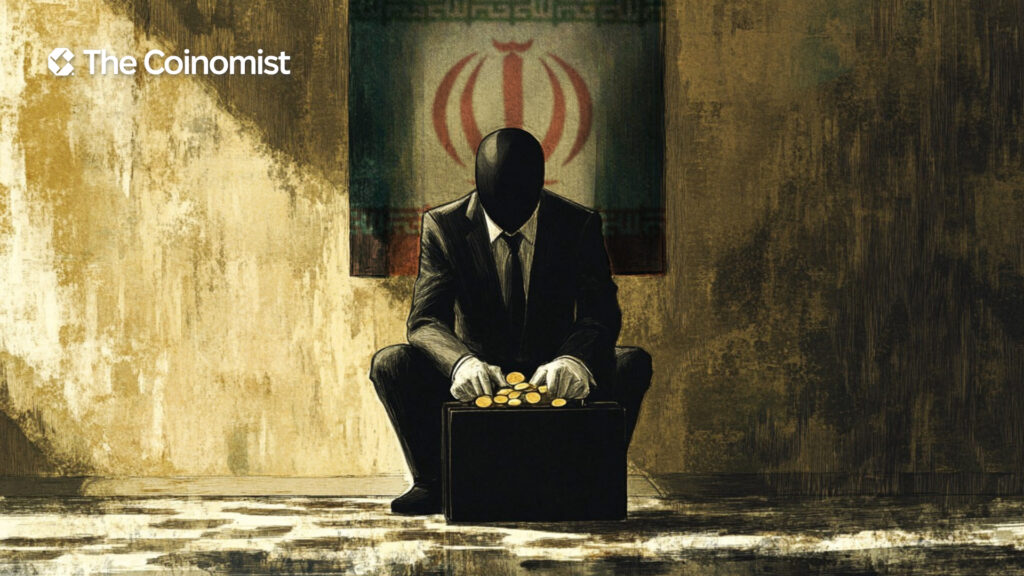Iranian IRGC Officials Accused of Stealing $21 Million in Crypto

Senior members of Iran’s Islamic Revolutionary Guard Corps (IRGC) are accused of embezzling $21 million in crypto assets from the Cryptoland exchange during an official investigation
On this page
Although the incident took place two years ago, its details have only recently come to light.
According to Iran International, IRGC personnel reportedly diverted a large sum of digital assets for personal benefit while overseeing the investigation into Cryptoland.
Furthermore, this case points to possible corruption not only within the IRGC but also across other branches of Iran’s government.
Incident Details: How the IRGC Stole $21M in Crypto from Cryptoland
Officials from Iran’s Islamic Revolutionary Guard Corps (IRGC), suspected of masterminding the operation, may be behind one of the country’s most audacious crypto thefts.
According to formal charges, they used their authority to transfer $21 million worth of cryptocurrency from assets seized during the Cryptoland investigation into wallets under their control. They later sold the funds for private gain.
The key figures in the case, Mehdi Hajipour and Mehdi Badi, are high-ranking officers within the IRGC’s economic intelligence unit. They disguised the operation as part of a corruption probe, giving them cover to reroute the assets and cash out on the open market for personal profit.
Related: Iran Moves Toward Crypto Legalization
Key Figures and Their Roles: Hajipour and Badi
Mehdi Hajipour and Mehdi Badi are at the center of the scheme.
Hajipour, an IRGC officer, is considered the main architect of the theft. He allegedly increased his personal wealth from $40,000 to $14.2 million, using the stolen crypto to purchase gold, luxury real estate, and high-end vehicles.
Badi, who operated under the alias “Dr. Ebadi,” was a close associate of Hajipour and actively participated in the theft. Moreover, he is reportedly the nephew of a former high-ranking IRGC official—a detail that raises questions about possible protection or a broader cover-up by authorities.
In addition, the corruption network included other IRGC members, such as Majid Jahan Parto and Majid Tabatabaei, along with several individuals who helped forge documents to legitimize and sell the stolen crypto assets.
Related: Every Fifth Iranian Uses Cryptocurrencies
Reaction and Consequences: Arrest, Investigations, and Impact on the Crypto Sector
Following the scheme’s exposure, authorities arrested Mehdi Hajipour in March 2022 during an anti-corruption operation. He was caught accepting a $10,000 bribe from Cryptoland CEO Sina Estavi, who was trying to recover the stolen tokens.

The incident triggered a criminal case against Hajipour and his associates. He was imprisoned in a facility designated for IRGC personnel, and his appeal was denied in September 2022.
Meanwhile, investigations in Iran are still in progress, and the long-term impact on government institutions and the crypto industry remains unclear. The involvement of high-ranking IRGC officials in a corruption scheme has further eroded public trust in state authorities, especially in matters related to digital assets. This may also result in increased political instability and stricter crypto regulations within the country.
The case also dealt a heavy blow to Cryptoland and its CEO, Sina Estavi. After his arrest, the exchange was shut down, and thousands of investors filed complaints. Estavi was sentenced to 15 years in prison, and his assets were seized. However, despite a travel ban, he managed to flee the country.
For crypto companies and investors operating in or with Iran, the $21 million theft carried out by IRGC officials raises serious concerns about the safety, transparency, and reliability of engaging with state-linked institutions.
Related: Iran Imports Goods Paid in Crypto to Circumvent Sanctions
The content on The Coinomist is for informational purposes only and should not be interpreted as financial advice. While we strive to provide accurate and up-to-date information, we do not guarantee the accuracy, completeness, or reliability of any content. Neither we accept liability for any errors or omissions in the information provided or for any financial losses incurred as a result of relying on this information. Actions based on this content are at your own risk. Always do your own research and consult a professional. See our Terms, Privacy Policy, and Disclaimers for more details.
























